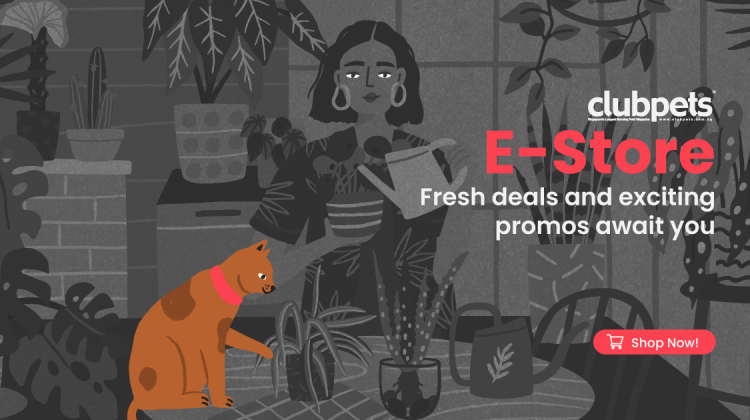Evan Goes Wild: Join World’s Hottest Vet Dr. Evan Antin on His Latest Adventures


Source: Basic Magazine
With charming good looks, good humour and a love for animals, there’s nothing more the animal world can ask for.

Evan with one of his many patients
Source: @dr.evanantin
Known as the world’s hottest veterinarian, Dr. Evan Antin first rose to fame through the selfies he takes with his animal patients, which he shares on his Instagram. The charming USA-based doctor has also been likened to British actor Henry Cavill, earning him the Superman title of the animal world. Unsurprisingly, Evan was previously named the Sexiest Man Alive by People magazine.

In an episode of Evan Goes Wild, Evan works with rhinos in Kenya
Source: @dr.evanantin
This May, Evan stars in his own show Evan Goes Wild, an Animal Planet TV series dedicated to raising the awareness on animal conservation issues. This eight-episode series follows Evan’s adventures across the world as he lends a hand to the local wildlife community. From treating a three-legged elephant to rescuing orphaned baby binturongs, the doctor’s determination to make a difference is inspirational. We had a quick chat with Evan where he shares more on his veterinary career and wildlife adventures.
1. What inspired you to take up a veterinary career?
One of my biggest motivations towards becoming a veterinarian was the opportunity to interact with animals. It’s probably my favourite thing in the world. Physical exams, diagnostics, medicine and surgery aside, I truly love just connecting with my patients – getting on their level and sharing a moment with them. Establishing a connection with my patients, domesticated or wild (when an option), not only makes me a better doctor for them but also feeds my soul. Taking a little time to get to know them helps me better understand life from their perspective and what they’ve been through.
2. What are some of the toughest parts of the job?
Countless cases of pet or animal abuse, illness, neglect, owner-ignorance, and euthanasia can really take a toll on a person. Even vets, who are amongst the most compassionate people in society, have a breaking point and sadly, many of them get to that point.
3. What are some of the main challenges you’ve faced when handling pet owners?
That some trust Dr Google’s medical advice over mine as a veterinarian. There are a lot of good resources on the internet which I think you can learn from, but you have to be careful because not every piece of information may be factual. So tread lightly, and definitely trust your local vet.
4. How do you deal with breaking bad news?
It’s never easy or fun but I always try to focus on the positives of pet ownership. Unfortunately, our beloved pets aren’t immortal. This is a part of the journey – having to share the sad news with pet owners is obviously horrible but at the same time a blessing because this pet/animal has a person or family that cares about its well-being so much.

Source: @dr.evanantin
5. Has your occupation changed your perception of animals (or people)?
The more animals you work with, the more you realise how sensitive and intelligent they are. Over the last few years, I had the chance to work and interact with Rhinos several times. Seeing how emotionally in tune, gentle and sweet young rhinos are in the wild, you realise there’s so much more to them than we think. The same goes for other animals like fish and reptiles and it’s devastating when they’re mistreated.
6. Is working with exotic animals commonplace?
I work with at least a couple of exotic animals every day that I work at Conejo Valley Veterinary Hospital. I also work with wildlife in various parts of the world most times I travel. These include lizards, snakes, tortoises, crocodiles, elephants, rhinos, monkeys and more.
7. Which animal would you say is the most difficult to treat?
Large tortoises, especially Sulcata tortoises, can be very challenging. When they tuck in, they become too strong to work with and sedating them can take quite a considerable amount of time.
8. Are you (secretly) afraid of any animals?
If there’s an animal I’m not comfortable with or haven’t worked with, I’m excited to get to know and work with it. There’s not one animal that I get the heebie-jeebies about. There are some that are definitely more dangerous. For example, with primates – apes, particularly chimpanzees – I am the most respectful and cautious. Chimpanzees are remarkably strong, smart and can be quite unpredictable. They can be very nice and then very mean. I’ve heard a lot of horror stories of people sustaining serious injuries from chimpanzees so I think I have the healthiest respect for chimps. That said, I still love working with primates and apes.

Evan with a monitor lizard
Source: @dr.evanantin
9. What are some of the most memorable moments from your exploration?
I was in an underground river in Palawan and there was a big Asian water monitor lizard. I wanted to make sure he was healthy because he appeared to have some kind of infection on his mouth, but he wasn’t enclosed so I didn’t know if I’d get to work on him. After much chasing, I caught him by the tail, but he was hissing and trying to bite me. What was so epic about it was that it was such a Steve Irwin moment – I was catching this monitor and talking about it on my Animal Planet show on the second episode in the Philippines.
10. Tell us about your experience with treating animals during your adventures. Also, what is the main difference between treating animals in a clinic/animal hospital and in the wild?
In the wild, I work with animals that are potentially deadly. These include venomous snakes and crocodiles, jaguars and bears. Wildlife does things that you don’t see coming sometimes – it is a little scary but I don’t put myself in a situation where I feel like I don’t have good control. I want to be confident in what I do and I have a healthy respect for these animals, especially knowing what they’re capable of. But deep down I still love working with them so a cost-benefit analysis is what it comes down to.

Evan chilling with his pet dog, Henry.
Source: @dr.evanantin
11. We hear that you’re a pet owner, tell us more about them!
I have two cats and a dog. Willy is a domestic short-hair cat – he’s 12 years old and one of the cuddliest cats ever. When he’s using the litter box, Willy makes this awkward eye contact – he’ll be peeing and be looking at you. Damien is a Russian Blue cat and was found in an attic. He’s a little destructive, particularly towards my couch. Henry is a Chihuahua mixed with, I think, a toy Fox Terrier. He loves to eat things he shouldn’t. Something I love about my pets and all pets is that they live in the moment. It’s a reminder to do just that.
12. What are some of the common injuries sustained by pets that pet owners can look out for?
It depends on the species and their lifestyles. With dogs for instance, some of the most common health conditions I treat are allergies, ear infections, dental diseases, dog bite wounds and arthritis.

Evan with an elephant, his dream pet
Source: Dr. Evan Antin
13. If you could have any animal that you have met throughout your adventures for a pet, which would it be?
If I had space (like a massive acreage), I’d love to rescue a couple of elephants! I’m willing to accept this will probably never happen, though. For more adventures with Evan, catch Evan Goes Wild on SingTel TV Channel 208 every Monday.








